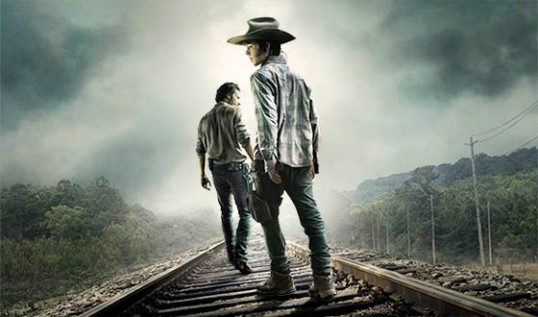The worst film of 2019 gets a sequel and the end result is one of the worst films of 2020. If nothing else, you have to appreciate the consistency of it all.
At the end of After, Tessa (Josephine Langford) and Hardin (Hero Fiennes Tiffin) had broken up, despite obviously being meant to be together. They broke up because Tessa discovered that Hardin only went out with her to win a bet. When After We Collided picks up their story, a few weeks have passed. Hardin is now sleeping in his car and getting new tattoos. Tessa is starting an internship at Vance Publishing. It doesn’t take long for Tessa and Hardin to get together and once again become the most boring couple on the planet.
Everyone warns Tessa about Hardin and, of course, Hardin spends a lot of time drinking and brooding and getting tattoos. But Tessa is now more independent and …. eh, who cares? I mean, even if Tessa is now a stronger and more confident character and Hardin is now more honest about his emotions, they’re still just as boring as ever and, if possible, Langford and Tiffin have even less chemistry in the sequel than they did in the first film. Langford has mastered one facial expression (a sort of low-energy smirk) and Tiffin is constantly screwing up his features whenever Hardin is supposed to be feeling emotional but neither one of them actually seems to be a living, full-blooded human being. Instead, they feel like bots, created to mouth repetitious dialogue and to go through the motions of the same plot over and over again. Everything they do seems to be pre-programmed. There’s not a spontaneous thought or moment to be found.
When Tessa isn’t flirting with Hardin and reading her favorite books (like Madame Bovary, because Tessa is edgy, y’all), she’s working at Vance Publishing. Her co-worker, Trevor (Dylan Sprouse) is in love with her but he’s too shy to come right out and say it. He does warn her that Hardin is just going to hurt her. Because the film is so ineptly edited, it’s hard to keep track of how much time passes. However, it does appear that Tessa becomes a valued and important member of the office in what seems to be just a matter of hours. Of course, everyone in the film loves Tessa because this is basically fanfic and a Mary Sue by any other name is still a cringey trope.
Speaking of fanfic, the author of After and its sequels has a cameo in this film. Anna Todd appears in a nightclub scene. A woman asks her what books she’s written and Todd smirks before saying, “Oh, this and that.” This inspired me to yell, “Fuck you!” as I looked for something to throw at the screen. Seriously, it’s one thing to be responsible for something terrible. It’s another thing to brag about it. Add to that, the cameo was so poorly executed that I half expected Todd to look straight at the camera and wink after delivering her line. In fact, it probably would have saved the scene if she had. At the very least, it would have at least suggested that the film was inviting us to laugh with it as opposed to at it.
That said, I will say that After We Collided is a slight improvement on After. In After, Josephine Langford actually tried to give an emotionally honest and consistent performance and, as a result, she was kind of boring because Tessa is an incredibly dull character. In After We Collided, Josephine Langford is just as bad as everyone else and it leads to a few unintentionally amusing moments. Unlike the rather stolid After, the sequel at least has a few moments of accidental camp.
My favorite moment was when a frustrated Tessa told Hardin that she needed to go for a walk to straighten out her thoughts. When Tessa returns, Hardin has his earbuds in and is listening to music so he can’t hear her. That still doesn’t stop her from standing behind him and repeating his name a few dozen times. Is he deliberately ignoring her or is the music just that good? The film never tells us but Tessa and Hardin are such annoying characters that it’s fun to think about all of the passive aggressive ways that they can make each other miserable.
After We Collided is reportedly going to be followed by two more sequels so we’ll eventually get to see if Hardin and Tessa can somehow become even more boring than they’ve already been. It’s not going to be easy but I think they might just pull it off.



